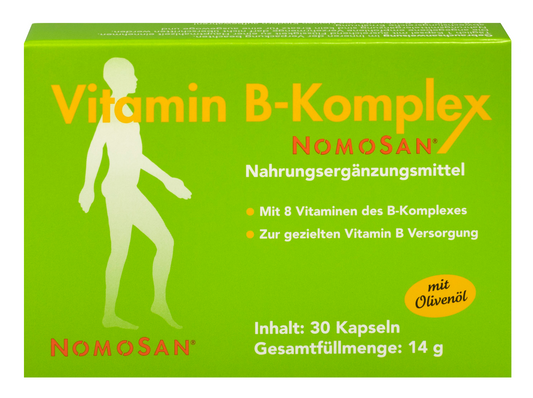Psyllium, also known as psyllium seed husk, is a hydrocolloid made from the seed husks of Plantago ovata. This plant has been traditionally used in medicine in India and China. In this blog post, we will look at the nutritional benefits of psyllium, its use in various foods, and the potential health effects it can bring.
Nutritional benefits of psyllium
Reduction of the glycemic index
Psyllium has the ability to lower the glycemic index of foods. This means that blood sugar levels rise more slowly after eating foods containing psyllium. This property is especially beneficial for people who need to control their blood sugar levels, such as diabetics.
Supporting cardiovascular health
Regular consumption of psyllium can help minimize the risk of cardiovascular disease. Studies have shown that psyllium can help lower cholesterol by reducing the absorption of cholesterol in the intestine.
Promotes digestion
Psyllium is rich in fiber, which can aid digestion. It can help relieve constipation by increasing stool bulk and stimulating bowel activity.
Weight management
Thanks to their high fiber content, psyllium seeds help you feel full for longer. This can help reduce calorie intake and thus support weight management.
Use of psyllium in food
Psyllium is increasingly used in various food products, not only for its nutritional benefits but also as a natural replacement for other hydrocolloids that are considered additives. Here are some examples of its uses:
Bakery products
In baked goods, especially gluten-free breads, psyllium is used as a substitute for gluten. It helps improve the structure and consistency of the bread by binding moisture and giving the dough elasticity. This results in a better mouthfeel and improved shelf life of the final product.
Dairy products
Psyllium can also be used in dairy products such as yogurt. It acts as a thickener and improves the texture and stability of the product. It can also increase the fiber content of the yogurt, which helps promote digestion.
Fruit-based products
In fruit-based products, such as smoothies and fruit yogurts, psyllium can be used to increase viscosity and ensure a uniform consistency. It also helps increase nutrient density and make the products more filling.
Benefits and challenges of using psyllium
Advantages
- Naturalness : Psyllium is a natural alternative to synthetic thickeners and stabilizers.
- Improved nutrient profiles : The addition of psyllium can improve the fiber content and other nutritional properties of foods.
- Wide range of applications : It can be used in a wide variety of products, from baked goods to dairy products to fruit-based foods.
challenges
- Amounts : To achieve significant nutritional benefits, large amounts of psyllium must be added, which can affect the texture and flavor of the final product.
- Acceptance : The change in texture and taste may meet with resistance from consumers.
- Costs : The use of psyllium can increase production costs, which may affect the final price of the products.
Solutions for undesirable effects
There are several approaches to addressing the challenges of using psyllium:
- Optimization of the recipe : By adapting the recipes, the amount of psyllium can be reduced without losing its positive properties.
- Combining with other ingredients : Combining psyllium with other natural ingredients can improve the texture and flavor.
- Consumer education : Educating consumers about the health benefits of psyllium can increase acceptance.
Conclusion
Psyllium is a versatile natural product that is becoming increasingly popular due to its numerous nutritional benefits and applications in food. Its ability to lower the glycemic index, support cardiovascular health and aid digestion makes it a valuable addition to the diet. Despite some challenges in using psyllium in food, there are solutions to overcome them and make the most of its health benefits
Sources
- Anderson, JW, Allgood, LD, Lawrence, A., Altringer, LA, Jerdack, GR, Hengehold, DA, & Morel, JG (2000). Cholesterol-lowering effects of psyllium intake adjunctive to diet therapy in men and women with hypercholesterolemia: meta-analysis of 8 controlled trials. American Journal of Clinical Nutrition, 71(2), 472-479. DOI: 10.1093/ajcn/71.2.472
- Effects of psyllium on glucose and serum lipid responses in men with type 2 diabetes and hypercholesterolemia - ScienceDirect
- The role and therapeutic effectiveness of Plantago ovata seed husk (psyllium husk) in the prevention and non-pharmacological treatment of gastrointestinal diseases. Part 1. Clinical use of psyllium husk in the treatment of irritable bowel syndrome, ulcerative colitis, and colorectal cancer - PubMed (nih.gov)
- Therapeutic effects of psyllium in type 2 diabetic patients - PubMed (nih.gov)
If you want to learn more about the benefits of psyllium for constipation and find out which natural home remedies can help you, please take a look here:
- https://nomosan.com/blogs/darmgesundheit-fordern/die-wirkung-von-leinsamen-und-flohsamen-gegen-verstopfung-zwei-bedeutende-studien
- https://nomosan.com/blogs/darmgesundheit-fordern/natural-remedies-against-constipation-insights-into-the-effectiveness-of-plum-juice-and-kiwi
If you are also interested in linseed, click here: https://nomosan.com/blogs/darmgesundheit-fordern/leinsamen-die-vielseitigkeit-eines-superfoods

